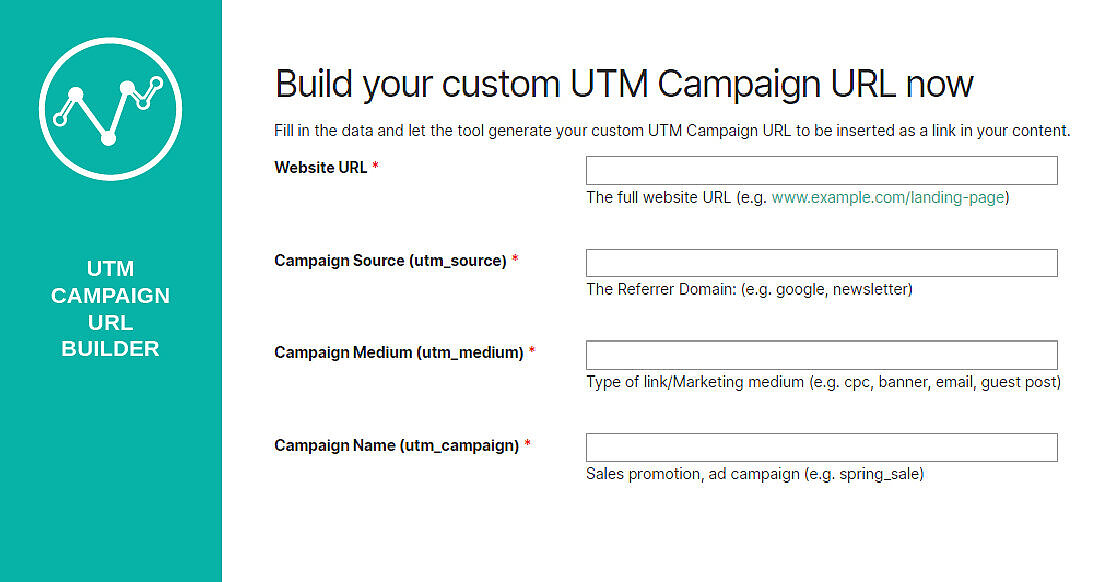
Though they may be optional, Blank fields diminish the accurate tracking and recording of campaign links in Google Analytics reports. We recommend that you decide on a standard and be consistent (e.g., ABC_TRAVEL vs abc_travel) We recommend using underscores (e.g., custom_marketing_templates) UTM parameters can not contain spaces between words. Consequently, a few things to keep in mind when building UTM links for multiple campaigns are: 
For instance, your organic social publishing strategy could also benefit from regular UTM tracking. There are a lot of ways to use UTM codeswhether it’s for a one-off campaign or a long-standing one. When running online marketing campaigns it's important that you establish consistent standards for reporting purposes. UTM Tag Builder also features a built in link shortener which solves the problem of those long links.
 Campaign Content (UTM_content): An optional parameter used for tracking A/B test variants. Campaign Term (UTM_term): Optional parameter that can be used to make the link specific to a keyword (e.g., for differentiation when running paid search ads). Campaign Name (UTM_campaign)*: The name of the marketing campaign you’re running (e.g., custom_marketing_templates).
Campaign Content (UTM_content): An optional parameter used for tracking A/B test variants. Campaign Term (UTM_term): Optional parameter that can be used to make the link specific to a keyword (e.g., for differentiation when running paid search ads). Campaign Name (UTM_campaign)*: The name of the marketing campaign you’re running (e.g., custom_marketing_templates).  Campaign Medium (UTM_medium)*: The channel of communication used for the link to your website (e.g., email, banner, CPC, social). Campaign Source (UTM_source)*: A reference to where the link is placed for a potential visitor to click and be transported to your website (examples include a newsletter, Google ad, Facebook page, LinkedIn ad, blog site, etc.). Website URL*: This is the target destination/the site that the link refers traffic to. Understanding the purpose of each tracking parameter can help you build UTM links that are easy to identify in campaign performance reports (If you are using the Rank Ranger platform you can create user-friendly tags to better track your Google Analytics performance, Learn how).
Campaign Medium (UTM_medium)*: The channel of communication used for the link to your website (e.g., email, banner, CPC, social). Campaign Source (UTM_source)*: A reference to where the link is placed for a potential visitor to click and be transported to your website (examples include a newsletter, Google ad, Facebook page, LinkedIn ad, blog site, etc.). Website URL*: This is the target destination/the site that the link refers traffic to. Understanding the purpose of each tracking parameter can help you build UTM links that are easy to identify in campaign performance reports (If you are using the Rank Ranger platform you can create user-friendly tags to better track your Google Analytics performance, Learn how).







 0 kommentar(er)
0 kommentar(er)
